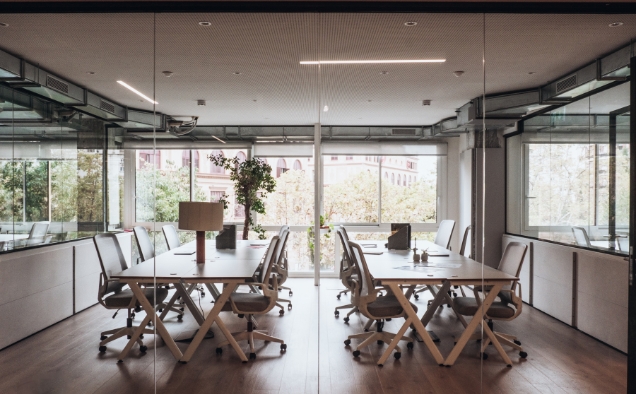The way we work is evolving rapidly. Traditional office models are giving way to more flexible, dynamic environments that prioritise collaboration, convenience, and adaptability. At the forefront of this transformation are shared workspaces, which are revolutionising how businesses and individuals approach work. In this blog, we’ll explore how shared workspaces are redefining the future of work and what this means for employers, employees, and entrepreneurs.
The Rise of Shared Workspaces
The popularity of shared workspaces has surged in recent years, fuelled by advancements in technology, the growth of remote work, and changing workforce expectations. These spaces cater to businesses of all sizes, from startups and freelancers to multinational corporations. By providing a ready-made solution to office space needs, shared workspaces offer a level of flexibility and efficiency that traditional office setups often lack.
Key Trends Driving the Shift to Shared Workspaces
Shared workspaces are managed by operators who handle the day-to-day maintenance of the space. Here’s how the process typically works:
- Remote Work and Hybrid Models As remote work becomes more prevalent, many businesses are adopting hybrid models that blend in-office and remote work. Shared workspaces provide a flexible solution, allowing teams to meet, collaborate, and work in a professional setting when needed, without the constraints of a permanent office lease.
- Cost Efficiency The economic uncertainty of recent years has pushed businesses to optimise costs. Shared workspaces eliminate the need for hefty upfront investments and ongoing expenses associated with traditional offices, such as furnishing, utilities, and maintenance.
- Technology-Driven Workspaces Shared workspaces are designed with cutting-edge technology to support modern work needs. High-speed internet, smart meeting rooms, and cloud-based solutions make these spaces ideal for tech-savvy businesses and employees.
- Focus on Collaboration and Community Unlike traditional offices, shared workspaces foster collaboration by bringing together professionals from diverse industries. Networking events, workshops, and communal areas create opportunities for innovation and growth.
How Shared Workspaces Are Redefining the Workplace
- Flexibility Shared workspaces allow businesses to adapt quickly to changes. Whether scaling up or downsizing, companies can adjust their workspace requirements without the burden of long-term leases.
- Work-Life Balance With shared workspaces available in various locations, employees can choose to work closer to home or in areas that reduce their commute. Many spaces also include wellness features such as gyms, meditation rooms, and ergonomic furniture, promoting a healthier work-life balance.
- Sustainability Shared workspaces contribute to more sustainable business practices by reducing the need for underutilised office space. Many operators also implement eco-friendly practices, such as energy-efficient lighting and recycling programs.
- Accessibility for Startups and SMEs For startups and small to medium enterprises (SMEs), shared workspaces provide a professional environment without the high costs and complexities of setting up a traditional office. This levels the playing field, enabling smaller businesses to compete with larger organisations
Real-World Example: A Hybrid Success Story
A creative agency in Melbourne transitioned to a shared workspace to accommodate their hybrid work model. By doing so, they reduced overhead costs while maintaining a collaborative space for team meetings and client presentations. The shared workspace’s vibrant community also led to partnerships with other businesses, further boosting their growth.
The Future of Work Is Here
Shared workspaces are more than just a trend; they are shaping the future of work. As businesses and individuals continue to prioritise flexibility, collaboration, and sustainability, these spaces will play an integral role in redefining what the workplace looks like.
At Offios, we provide premium coworking space in Perth designed for businesses that value flexibility, collaboration, and convenience, helping you work smarter in a professional, fully equipped environment.
Conclusion
The shift toward shared workspaces reflects a broader evolution in how we approach work. These dynamic environments are not only reshaping office culture but also enabling businesses to thrive in an ever-changing world. Whether you’re a freelancer, a growing company, or a large organisation, shared workspaces offer the tools and flexibility to succeed in the modern era.


